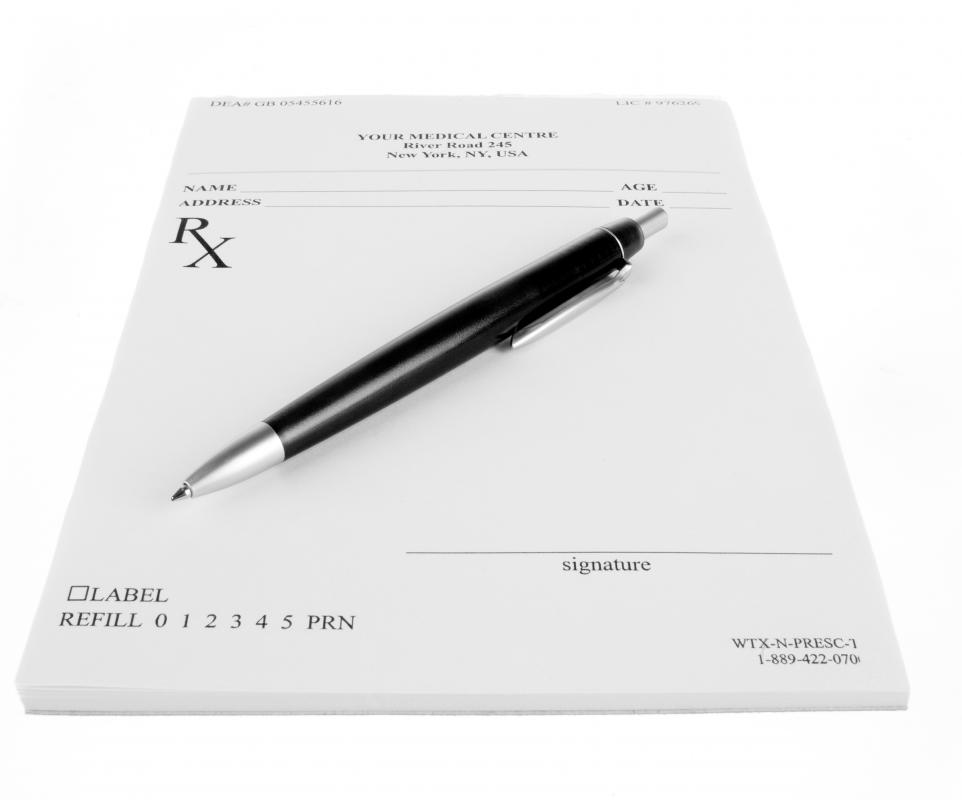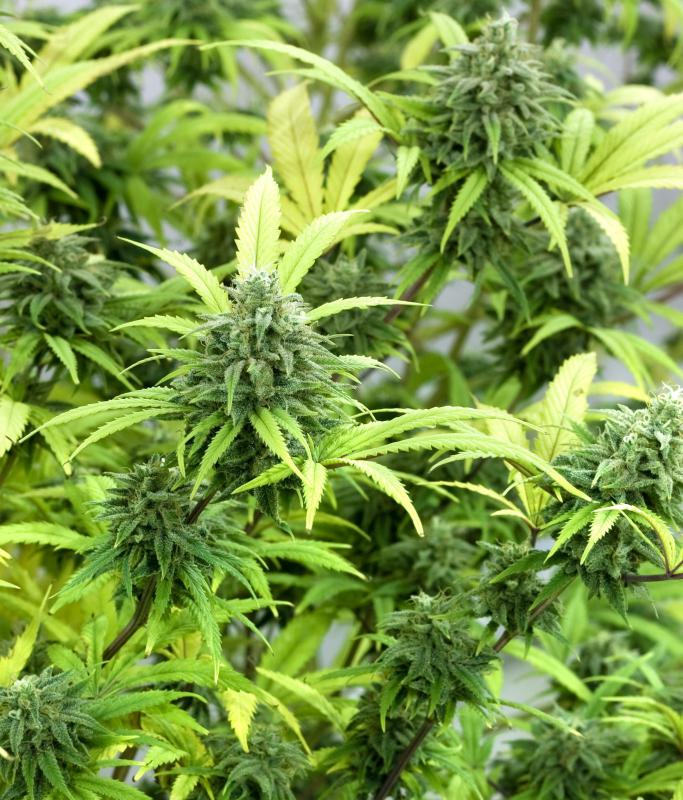At WiseGEEK, we're committed to delivering accurate, trustworthy information. Our expert-authored content is rigorously fact-checked and sourced from credible authorities. Discover how we uphold the highest standards in providing you with reliable knowledge.
How do I get a Medical Marijuana Prescription?
First off, it should be noted that it is not always possible to get a medical marijuana prescription. Not all places have laws permitting the use of this drug, though there are studies supporting its use for a variety of medical conditions. A prescription does little good in a state or region where the medication can’t be purchased legally. In contrast, there are areas of the world where marijuana is not illegal and can be obtained without a prescription. Knowing the law of a particular region is the best way of finding out if this drug is available.
There are some synthetic drugs that contain some of the elements that marijuana contains. Medications like Marinol® are available by prescription from medical professionals in most places. It should be noted that some people find this medication effective, but others believe that medical marijuana is far more useful and likely to treat symptoms with greater ease.

In those areas where medical marijuana can be used, there may be different ways to obtain a prescription. Some people might be able to work directly through a family doctor, and others will need to see a medical professional who specializes in the prescription of the drug. Asking a family doctor is a good place to start, as she can usually recommend someone if she cannot prescribe the medication on her own. Another place to look is at a marijuana dispensary or “pot club.” They will normally be able to give names of medical professionals who may be able to evaluate you for a prescription.

In many regions, people can only get a medical marijuana prescription if they have certain medical conditions. Many of these fall under chronic pain or chronic health problems. For example, illnesses like cancer, AIDs, autoimmune diseases of other origins, eating disorders, and migraines are likely to be acceptable illnesses for which marijuana can be used. Each state or area may have a different list.

It’s fairly easy to get a prescription by knowing what the list is for a particular region. Healthcare providers that prescribe this medication may not always do full neurological tests to determine if a person has migraines or chronic back pain. This is greatly discouraged because illegal measures to obtain pot may taint the system for those who most could use this drug as medication.

Complaints about anyone acquiring it by telling a few lies could make it extremely difficult for the cancer patient who uses it to stop vomiting repeatedly, or the AIDS patient who has finally been able to put on weight and may thus have added a few years to his or her life. There have been movements back and forth on the law with greater or lesser support for the use of this drug. When it is misused, there tends to be a pull toward simply making it illegal again. While many believe that the present laws are to strong, abusing them by getting an unauthorized medical marijuana prescription is unfortunate, and might set the clock back instead of forward on this issue.
AS FEATURED ON:
AS FEATURED ON:
















Discussion Comments
@Georgesplane: It's a pleasure to read your post. I just had major knee surgery and was prescribed Vicodin, which is highly addictive and, as you said, results in a far more detrimental addiction than medical marijuana. Unfortunately, insurance would cover this awful drug, which I discontinued using after 36 hours post surgery since, despite a high dietary fiber intake plus herbs, I strained for 30 minutes with feces stuck half outside my body! (taking the minimum dosage). I also couldn't sleep. I live in a state where they "threaten" to legalize medical marijuana. It makes no sense to torture people with prescription medications while insurance companies get paid.
Does the permit to use marijuana for chronic pain allow to me grow my own marijuana plants?
I have had chronic back pain in the thoracic region for four years and counting. It started with two compressed disks from football (2007) and intensified with a snowboarding injury (2010) causing temporary severe muscle spasms.
Since these two incidents occurred, the pain has been ongoing and has been treated by medications such as Naproxen 500mg and flexeril 10mg, as well as physical therapy and a few doctor's visits. Despite the legitimate history, I feel that my inconsistency in following up monthly may pose a problem in becoming certified. Any input?
@ Submariner- The Arizona laws will be some of the strictest in the country, but from the sounds of your ailment, you will qualify. Chronic and severe and one pre-requisite, and permanent TMJ would be considered both. If I remember correctly, the Arizona law also requires verified history of a diagnosis, which you also have covered.
If I were in your shoes, the one thing I would worry about is the need to be registered and monitored as if you were a convict or felon. They take your fingerprints and store your information in a database that is accessible to law enforcement (it may only be accessible for a limited time). In my opinion, it is a little crazy that they will be policing medical marijuana harder than they will be policing methamphetamine, especially considering the people who use medical marijuana are patients and the people using meth are dangerous junkies.
I live in Arizona, and my state just became the 15th state to pass medical marijuana legislation. Does anyone know the details about getting a medical marijuana card in my state? Do I seek out a medical marijuana clinic? I have permanent TMJ that has been diagnosed repeatedly over the past few years by doctors, dentists, and TMJ specialists. I would like to know if I qualify for medical marijuana under Arizona law, and what the procedure is to get my medical marijuana card.
If I am not approved, the only option I have is surgery (which does not fix the underlying causes of the jay disorder), physical therapy, and prescribed pain narcotics. The last option is of particular concern because I do not want to become dependent on these meds for the rest of my life. Thank you to anyone who can give me advice.
It is common that doctors will actually require medical records proving the patient has chronic pain. They may offer a three or six-month recommendation until a patient can get a doctor that their insurance covers to completely diagnose their symptoms, but in most places they will not simply give out longer recommendations because it does taint the system. This is even becoming common practice in some of the more liberal medical marijuana states like California.
Contrary to the beliefs of some, medical marijuana has a legitimate place in medicine and pain management. Often times the alternatives to medical marijuana, especially in the area of pain management, are far more detrimental to a person's health than the alternatives. Pain narcotics are highly addictive and pain medication abuse can lead to a person hitting rock bottom and no longer being a functioning member of society.
Post your comments